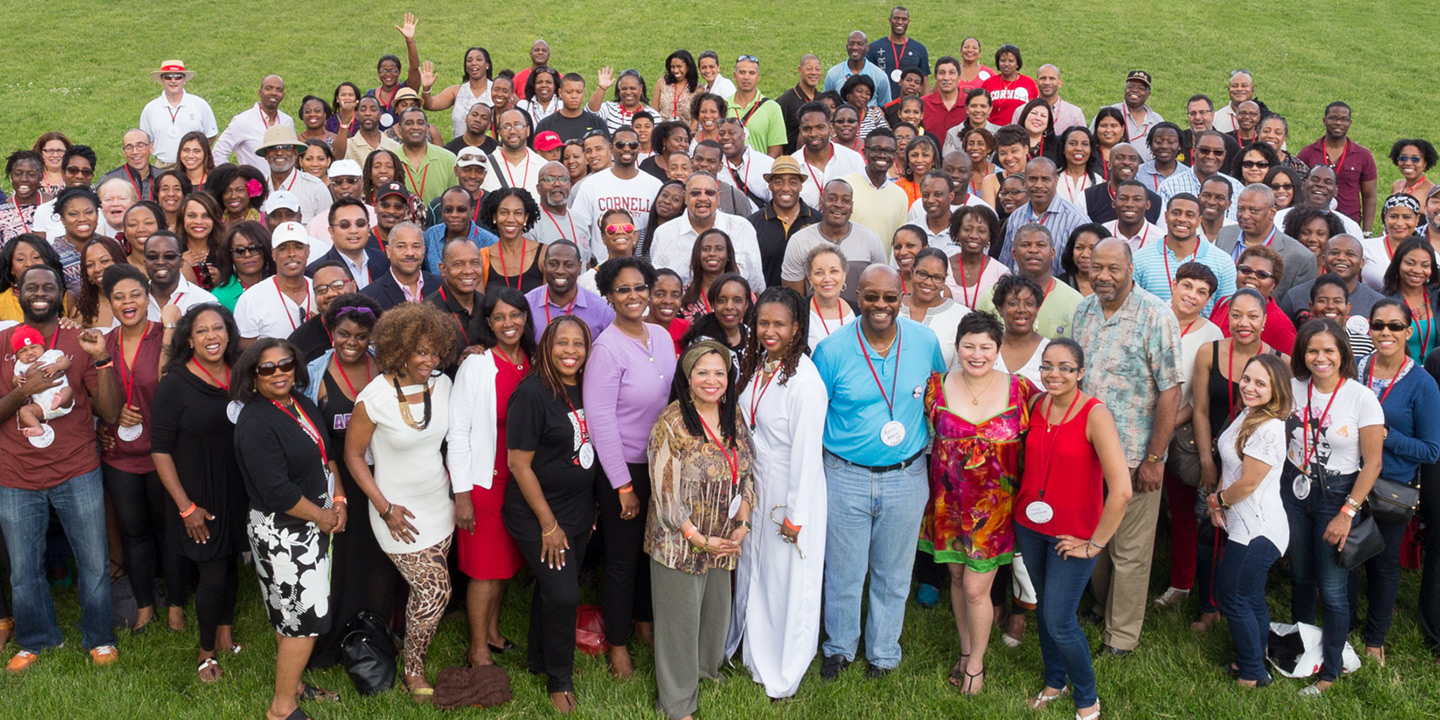The Intergroup Dialogue Project (IDP) works to engage the entire Cornell community by facilitating dialogue among small groups of community members. Founded in 2012 as a pilot project involving a few dozen undergraduates, IDP has experienced explosive growth at Cornell. The academic initiative now touches every undergraduate on campus as a part of Cornell’s first-year orientation process.
Here’s how IDP works: Trained facilitators help group members explore their own social identities—which differ based on an individual’s physical, social, and mental characteristics (such as sexual orientation, race, age, etc.). Facilitators also introduce tools for communicating more successfully with others. Then, everyone has a chance to practice using these tools to engage in dialogue with others who may have different social identities.
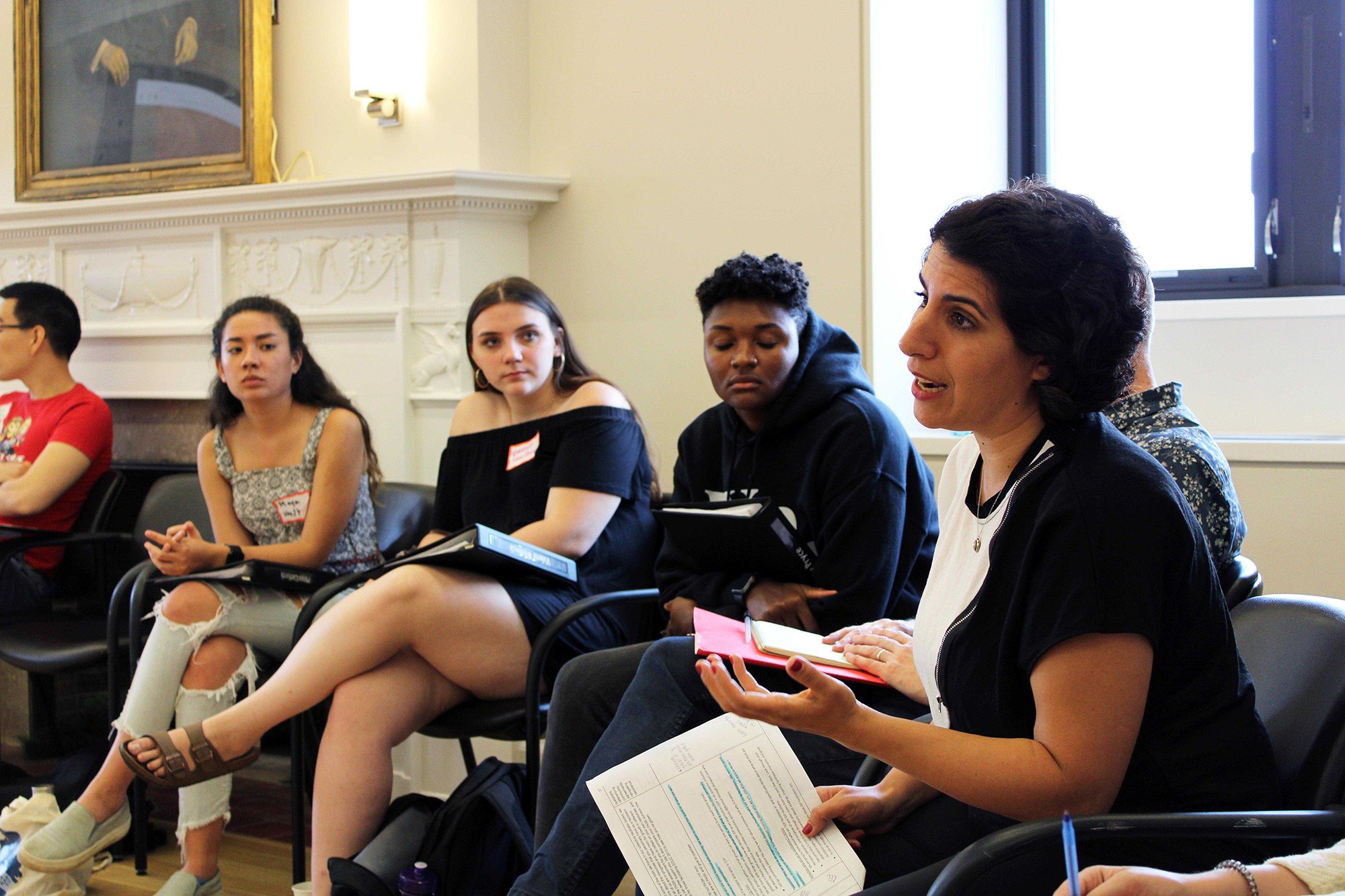
“Never in our wildest dreams did we think we would witness the oft-heard statement ‘everybody should do IDP’ start to be realized,” says Adi Grabiner Keinan PhD ’15, executive director for Undergraduate Diversity Education and director of IDP. “We are still in awe that in less than four years, the entire undergraduate population will have been touched by intergroup dialogue.”
The magic of co-learning
According to Grabiner Keinan, “In the traditional academic setting the power structure is clear. Instructors have more knowledge and experience, and their role is to ‘transfer’ information to their students.” But IDP changes this power dynamic so that everyone is both a teacher and a learner.
In dialogue, knowledge is produced collectively—each participant contributes to the conversation. “Our assumption is that all of us have the capacity to teach others about our lived experiences and perspectives, as well as to learn from others about their own,” says Grabiner Keinan.
“The tools I learned from IDP made me a much more productive collaborator by encouraging me to express and process ideas in a way that makes all parties feel validated and heard,” says Reed Rosenberg ’20. Rosenberg highly recommends the IDP class to “every single Cornell student.”
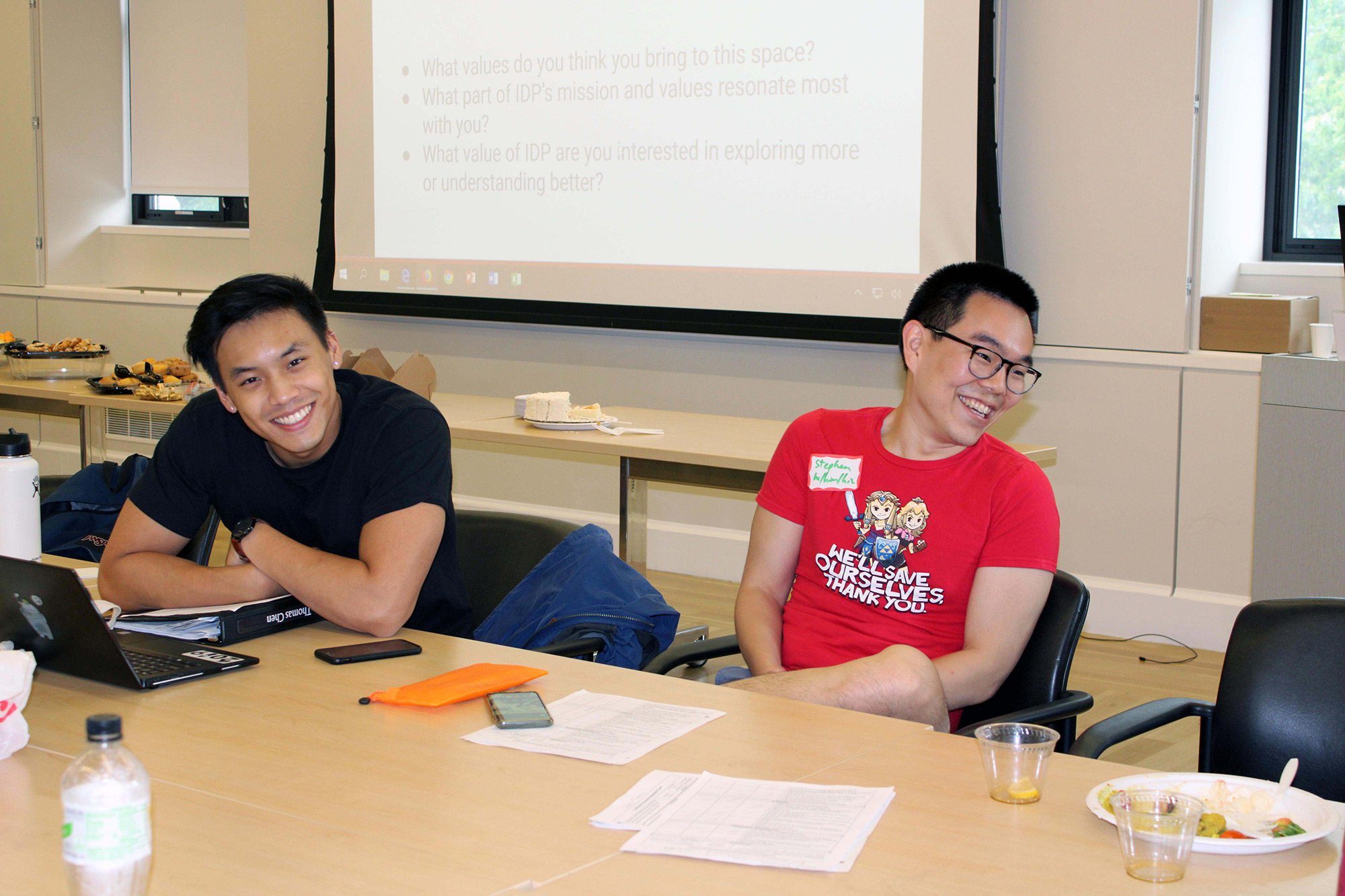
“IDP helps students recognize how diversity and power are at play in their everyday conversations and everyday lives,” says Stephen Kim, a PhD candidate in English who works as IDP’s residential community specialist. “This recognition, in turn, encourages connection and communication across difference,” Kim explains. He says that IDP helps students acknowledge their differences before they enter into dialogue, rather than pretending they don’t exist.
Getting people into the room
Gomez Garner says that the biggest challenge at Cornell is getting people in the room. “I hope that we can rise to this challenge and encourage our students and campus community to make the brave choice, to move outside their comfort zones, and to engage with one another.”
IDP asks participants to push themselves outside of their familiar social identities, into dialogue with people whose identities and opinions differ from their own. After seven years with IDP, Gomez Garner is confident that IDP works. “Once they get there, real connection and understanding happens,” she says.
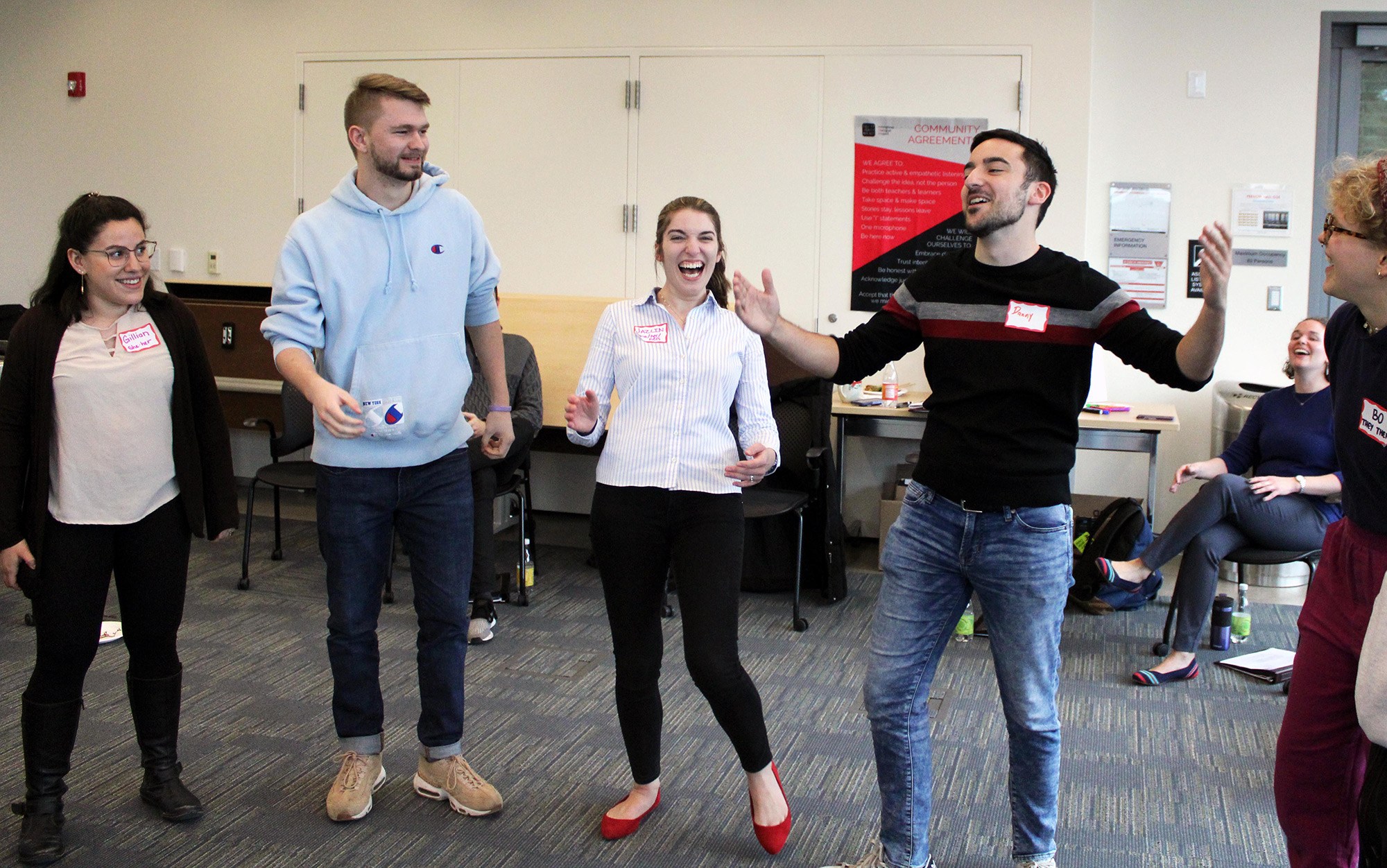
For some, IDP has become a defining element of their Cornell experience. “Deciding to take IDP my sophomore year was one of the best decisions I’ve made at Cornell,” says Nick Sepulveda ’20. “I’ve never really been challenged about my stances on certain topics, so it was eye-opening and extremely thought provoking to be able to finally discuss these ideas.”
“IDP has taught me to see differences and confront conflicts productively in a way that I did not believe was possible,” says Linda He ’21. “IDP is an experience that I will carry with me as a reminder not to shy away from conflict, because conflict is the greatest opportunity for me to grow.”
Alumni at the heart of IDP
The ten-person IDP leadership team includes eight Cornell alumni, one current student, and the spouse of a Cornellian:
- Adi Grabiner Keinan PhD ’15, executive director for Undergraduate Diversity Education and director of IDP
- Baba Adejuyigbe ’18, co-curricular program assistant
- Bryan Garner, digital content strategist
- Jazlin Gomez Garner ’16, MPA ’18, pedagogy specialist
- Jumoke (Jum) Warritay PhD ’17, diversity education specialist
- Kellie Ochs ’19, office assistant
- Natasha Steinhall ’14, MPA candidate, program coordinator
- Rachel Sumner PhD ’15, associate director
- Stephen Kim, PhD candidate, residential community specialist
- Tom Chen ’19, MEng candidate, technology assistant
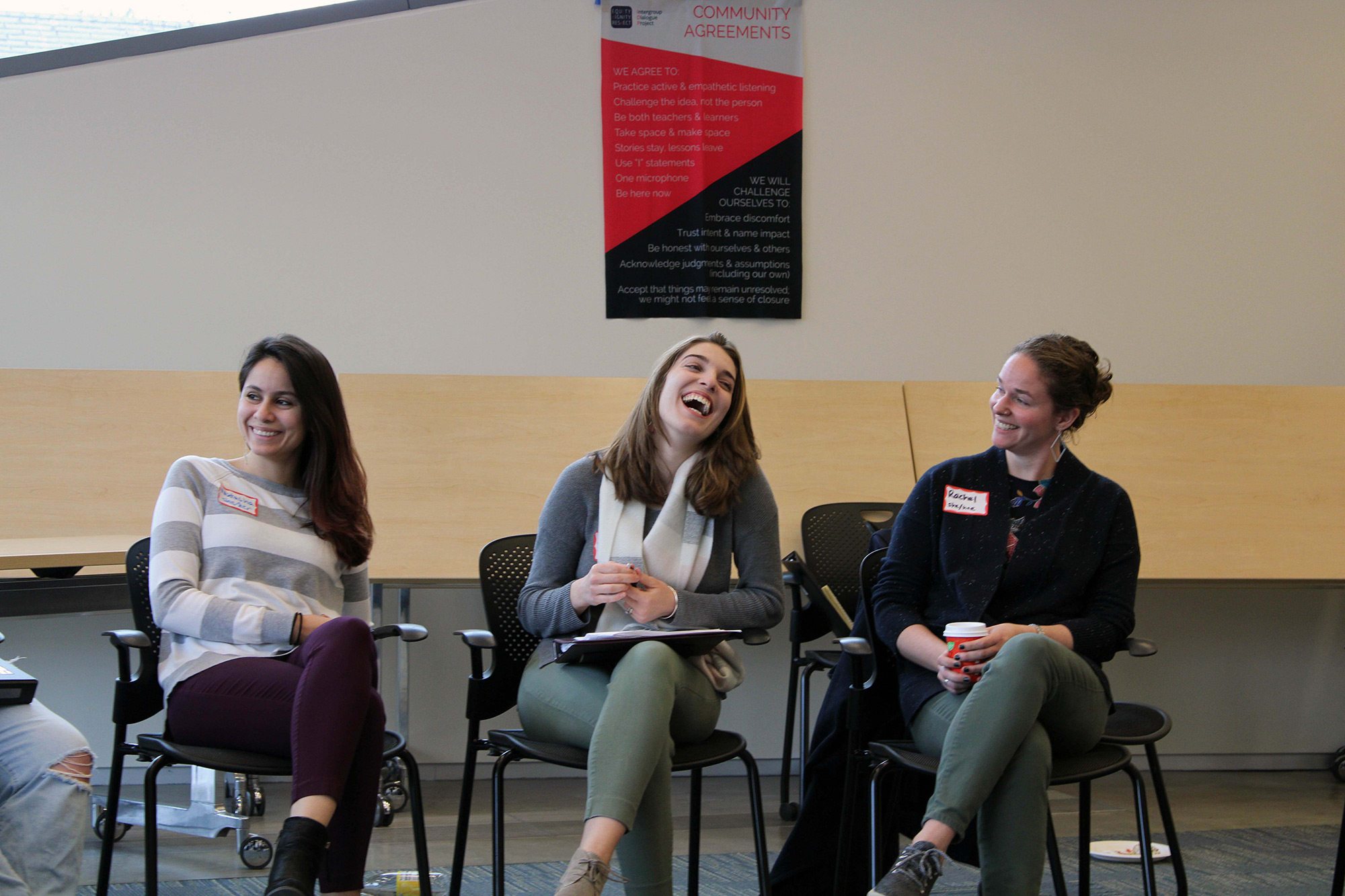
These alumni have come together across a diverse array of fields to work for IDP, from engineering to English to animal science. Most team members had already worked as peer facilitators with IDP for years, and so they followed a natural progression as they transitioned from student to facilitator to part- and full-time staff of IDP, explains Gomez Garner.
“Eight of us participated in either the graduate or undergrad IDP courses and became a facilitator for the program—part of the IDP family—before we were hired for our current positions,” says Gomez Garner.
Growing the IDP family
The IDP family now includes more than 7,000 undergraduate students who participated as part of Cornell orientation activities in 2018 and 2019. About 200 undergraduates per semester also enroll in the IDP academic course, EDUC 2610: Intergroup Dialogue. Between 10-20 graduate and postdoctoral students participate in a similar non-credit course, also offered every semester.
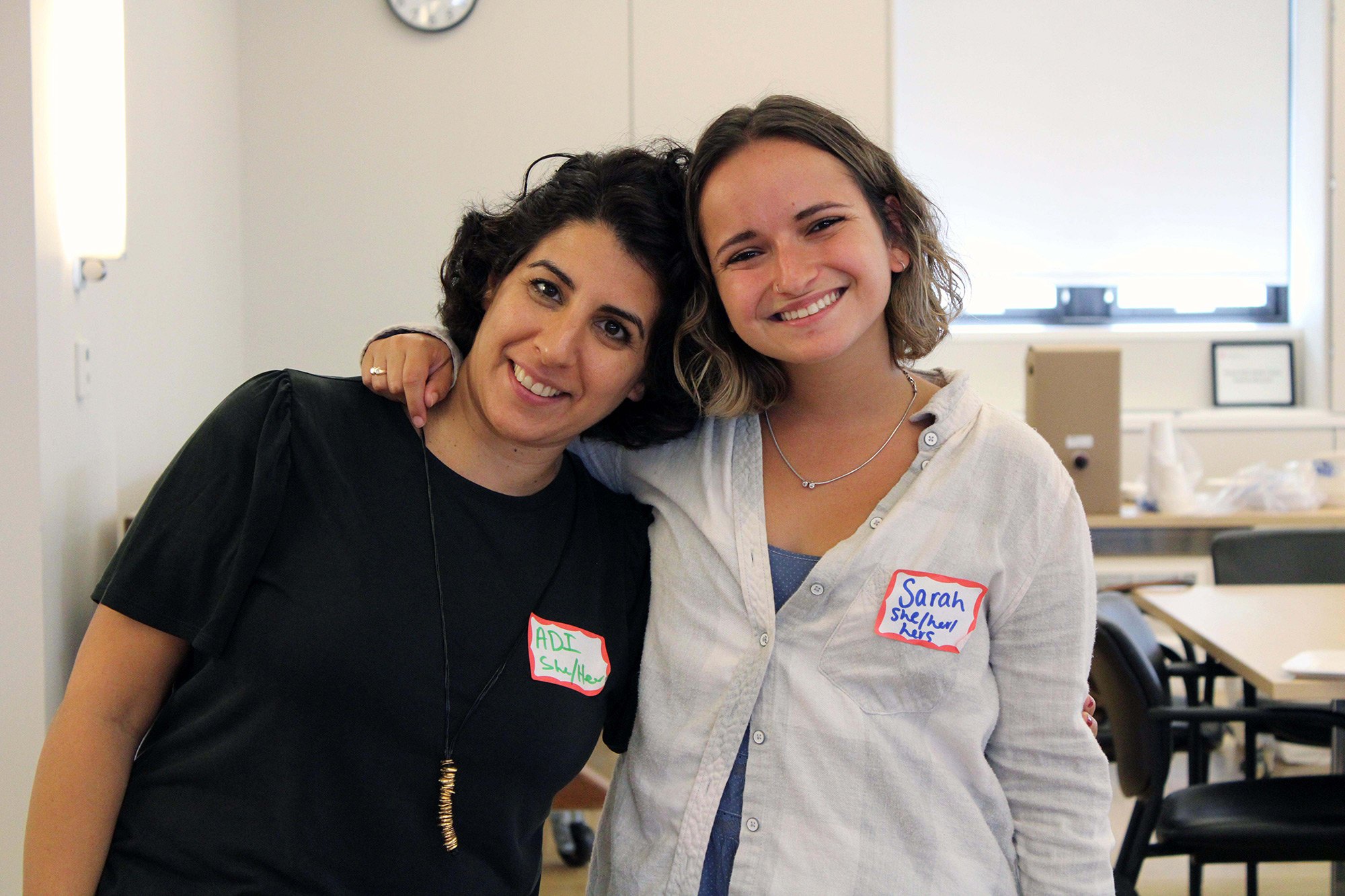
At the end of each semester, between 20-26 students in the academic class are selected to become peer facilitators. These students enroll in EDUC 4826: Leading Dialogue Across Difference, a four-credit course that students take while co-facilitating one section of EDUC 2610. This experience allows them to practice and hone the skills of intergroup dialogue under the close mentorship of IDP staff.
Thus, IDP alumni train the next generation of IDP facilitators and champions on campus. Since its inception, over 235 students, staff, and faculty have completed facilitator training and have helped lead IDP courses and workshops.
IDP has developed offerings for every constituency group at Cornell, including students, faculty, staff, and alumni. Past offerings include an IDP training for residential staff on West Campus, an IDP workshop for the Cornell Club in NYC, and an IDP workshop for the editorial board of the Cornell Daily Sun.
Gomez Garner reports that IDP hosts between 30 to 70 workshops each semester, and sometimes as many as three workshops in one day. “These groups come to us,” she says, “because they want tools and space to reflect on their identities and communicate better.”
Cornell has a radically diverse community, with students, faculty, and staff coming together from so many different places and experiences. “IDP challenges each member of this community to be the best versions of ourselves,” says Gomez Garner. “I am incredibly grateful to be a part of it.”
Connection in the time of coronavirus
Even in these difficult times, Cornellians are finding ways to connect, care for one another, and show compassion. Do you have an inspiring story to share? Submit your story.

